Detailed introduction of the University of Vigo:
Introduction and Overview
Geographical location: Located in Vigo, Galicia, Spain, the city is an important city in southern Galicia and one of the economic, cultural and educational centers of the region. In addition, the school also has campuses in Pontevedra and Ourense. All three campuses are close to Portugal, with unique geographical advantages, which is conducive to international exchanges and cooperation.
Number of students and faculty: In the 2016-2017 academic year, there were 21,235 students, including 16,725 undergraduates, 2,046 postgraduates and 1,358 doctoral students. The school has 1,400 academic staff and 793 administrative staff.
History and establishment time
The predecessor of the University of Vigo was the University College of Vigo, which was approved for construction in 1972. Classes began in 1977-1978, offering degree courses in chemistry, biology, economics and linguistics.
In 1990, in accordance with the University System Organization Act of the Autonomous Region of Galicia, the University of Vigo separated from the University of Santiago de Compostela and officially became an independent public university.
School Strength
Teaching quality: As a comprehensive public university in Spain, it offers degree courses at different levels, including associate, undergraduate, master and doctoral degrees, covering a wide range of subject areas. Its official degrees are recognized by the Spanish government and the international community.
Faculty: It has 1,400 academic staff who have rich teaching and research experience in their respective professional fields and can provide students with high-quality education and teaching services.
Scientific research strength: The University of Vigo is the only university in Spain with independent satellite research and development capabilities and has launched satellites. Its fourth satellite "Lume" was launched on December 27, 2018. The University has more than 250 internationally renowned scientific research achievements. Through cooperation with 25 scientific research institutions, more than 3,000 researchers and 1,500 doctors have participated in the project, and more than 6,000 research projects have been carried out in the past five years.
Institutional Nature
Public University.
Educational Philosophy
Committed to establishing positive values based on transparency and good management, integration, equality, diversity and respect for the environment, focusing on professional and high-quality research, emphasizing the transfer of knowledge to society, and striving to ensure that research results can continue to give back to social development.
Key Laboratories and Disciplines
Key Disciplines: Strong in food science, marine science, electronics and communications engineering, civil engineering, management, tourism management and other disciplines. Among them, food science ranks 51-75 in the ARWU 2019 World University Subject Ranking; marine science ranks 101-150; electronic and communication engineering ranks 151-200; civil engineering ranks 201-300; management and tourism management ranks 201-300; ecology, life science, and chemical engineering ranks 301-400.
Key laboratories: The school has the Center for Scientific and Technological Research Support (CACTI), the Biomedical Research Center (C in Bio), the Industrial Technology Research Center (MTI), etc., which provide advanced technical platforms and experimental conditions for scientific research in related disciplines.
Department Settings
The school has the Department of Fine Arts, the Department of Science, the Department of Biology, the Department of Marine Sciences, the Department of Chemistry, the Department of Education, the Department of Education and Sports Sciences, the Department of Economics and Enterprise Sciences, the Department of Enterprise and Tourism Sciences, the Department of Social and Communication Sciences, the Department of Justice and Work Sciences, the Department of Law, the Department of Linguistics and Translation, the Department of History, etc. 14 Departments.
There are also 13 colleges, including the Higher School of Information Engineering, Higher School of Mineral Engineering Technology, Higher School of Telecommunications Engineering Technology, Higher School of Industrial Engineering Technology, School of Nursing, School of Forest Technology Engineering, School of Industrial Technology Engineering, School of Business Research, School of Physical Therapy, and E.X.B. Teacher Training School.
Ranking
2024 QS World University Rankings: 901-950.
2023 Times Higher Education World University Rankings: 1001-1200.
2023 US World University Rankings: 866.
2022 Soft Science World University Rankings: 501-600.
Expenses
Undergraduate courses: free of charge, only a registration fee of 500 euros/year is required.
Master's courses: The total tuition fee is about 15,000-40,000 RMB on average, depending on the major. For some professional master's courses, you can apply for scholarships from the school, or 10%-50% of the tuition fee. of scholarships.
Doctoral stage: low tuition fees, and scholarships of 500-1000 euros per month can be applied for.
Living expenses: an average of about 30,000 RMB/year.
Campus environment
Vigo Campus: Inspired by the concept of American university towns, the campus is a collection of teaching buildings, administrative buildings and student apartments, as well as various sports venues such as gyms, and commercial centers, which provide convenience for students' lives. The campus is far away from the hustle and bustle of the city, but has convenient transportation to the city center where some teaching sites are located.
Orense Campus: Completely in the urban atmosphere, it has its own charm, especially the old building, which is designed in the style of an old hospital. The new and old buildings are connected by an aerial corridor. There are several major departments, student apartments and sports venues in the building.
Pontevedra Campus: Located in the city, it combines art, sports and humanities, and has multiple teaching spaces, including the central campus in the north of the city and multiple departments in the city center.
-
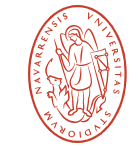
University of Navarra
-
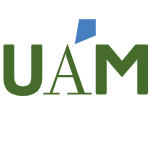
Autonomous University of Madrid
-

Polytechnic University of Catalonia
-

CEU University of San Pablo
-
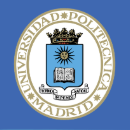
Technical University of Madrid
-

University of Lleida
-
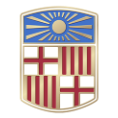
University of Barcelona
-

University of Oviedo
-
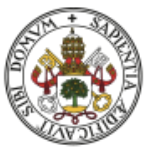
University of Valladolid
-
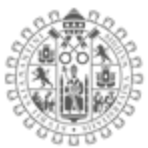
University of Salamanca
-

Mesoamerican University
-

Istmo University
-

Mariano Galvez University of Guatemala
-

Regional University of Guatemala
-

Galileo University
-

Francisco Marroquín University
-

Rafael Landívar University
-

University of the Valley of Guatemala
-

University of San Carlos of Guatemala
-

Technological Institute of Tlaxcala Plateau
-

Golfo University
-

Technological University of South Sonora
-

Technological University of Huejotzingo
-

Tizimín Institute of Technology
-

Chilpancingo Institute of Technology

